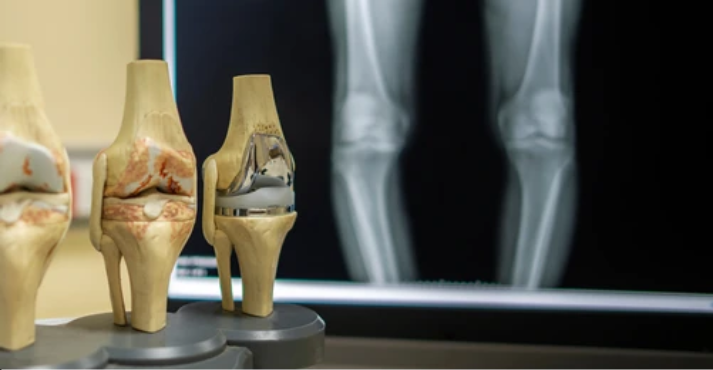Revision Joint Replacement is a complex surgical procedure performed to replace or repair a previously implanted artificial joint that has failed, worn out, or developed complications. It may involve the knee, hip, or both, and typically requires advanced expertise, specialized implants, and meticulous surgical planning.
While primary joint replacement surgeries—like total knee or hip replacement—are highly successful, artificial joints are not lifetime solutions. Over time, implants may loosen, wear out, or fail due to various factors, necessitating revision surgery to restore joint function and improve quality of life.
What Is Revision Joint Replacement?
Revision surgery involves removing part or all of the original prosthesis and replacing it with a new implant. This procedure is often more complex than the initial joint replacement due to:
- Scar tissue formation
- Bone loss or deformity
- Infection risks
- The need for specialized implants and reconstruction techniques
Common Reasons for Revision Surgery
- Implant Loosening or Wear
Over time, prosthetic components may become loose due to natural wear or bone loss, resulting in pain and instability.
- Infection
Prosthetic Joint Infection (PJI) is a serious complication requiring immediate attention. Revision surgery may include removing the implant, treating the infection, and re-implanting a new joint (either in the same procedure or in stages).
- Dislocation (Hip) or Instability (Knee)
Frequent dislocations after hip replacement or instability in the knee joint may require revision to correct alignment and improve joint mechanics.
- Fracture Around the Implant
A break in the bone near the joint prosthesis—called a periprosthetic fracture—may compromise implant stability and require revision surgery with bone grafting or new components.
- Implant Breakage or Mechanical Failure
Though rare, implants can fracture under stress, particularly in high-demand patients or due to poor bone support.
- Progressive Bone Loss (Osteolysis)
Tiny particles from implant wear can cause the body to resorb bone, leading to loosening and implant failure.
Types of Revision Surgeries
Revision Knee Replacement
- Partial or complete removal of the old prosthesis
- Resurfacing of damaged bone and soft tissues
- Insertion of new components with longer stems, augments, or bone grafts
- Use of constrained or hinged knee implants for improved stability
Revision Hip Replacement
- Removal of worn or dislocated components
- Management of bone loss with bone grafts or custom implants
- Re-implantation of prostheses with longer femoral stems or specialized acetabular cups
- Use of dual-mobility or constrained liners for improved stability
What to Expect from Revision Surgery
Preoperative Planning
- Comprehensive evaluation including X-rays, CT scans, blood tests, and joint aspiration (if infection is suspected)
- Detailed surgical planning based on bone quality, alignment, and patient goals
Surgical Procedure
- Longer and more complex than primary joint replacement
- May take 2–4 hours depending on the case complexity
- May involve bone reconstruction or staged procedures (especially in infections)
Hospital Stay & Recovery
- Hospitalization: 3–7 days
- Rehabilitation begins early with physiotherapy
- Full recovery may take 3–6 months, depending on complexity and patient health
Benefits of Revision Joint Replacement
- Relief from chronic joint pain
- Restoration of mobility and function
- Improved joint alignment and stability
- Enhanced quality of life
- Prevention of further joint damage or complications
Risks and Considerations
Revision surgery is generally safe, but because of its complexity, it carries higher risks than primary joint replacement, including:
- Infection
- Blood loss
- Nerve or vessel injury
- Blood clots
- Implant failure or loosening
- Reduced range of motion or stiffness
Choosing a skilled and experienced revision joint replacement surgeon significantly reduces these risks and improves the success of the procedure.
Why Choose a Specialist for Revision Surgery?
- Advanced surgical skills
- Access to specialized implants and bone grafting materials
- Experience in managing infections, bone loss, and joint instability
- Multidisciplinary care including orthopedic surgeons, infectious disease specialists, physiotherapists, and pain management experts






